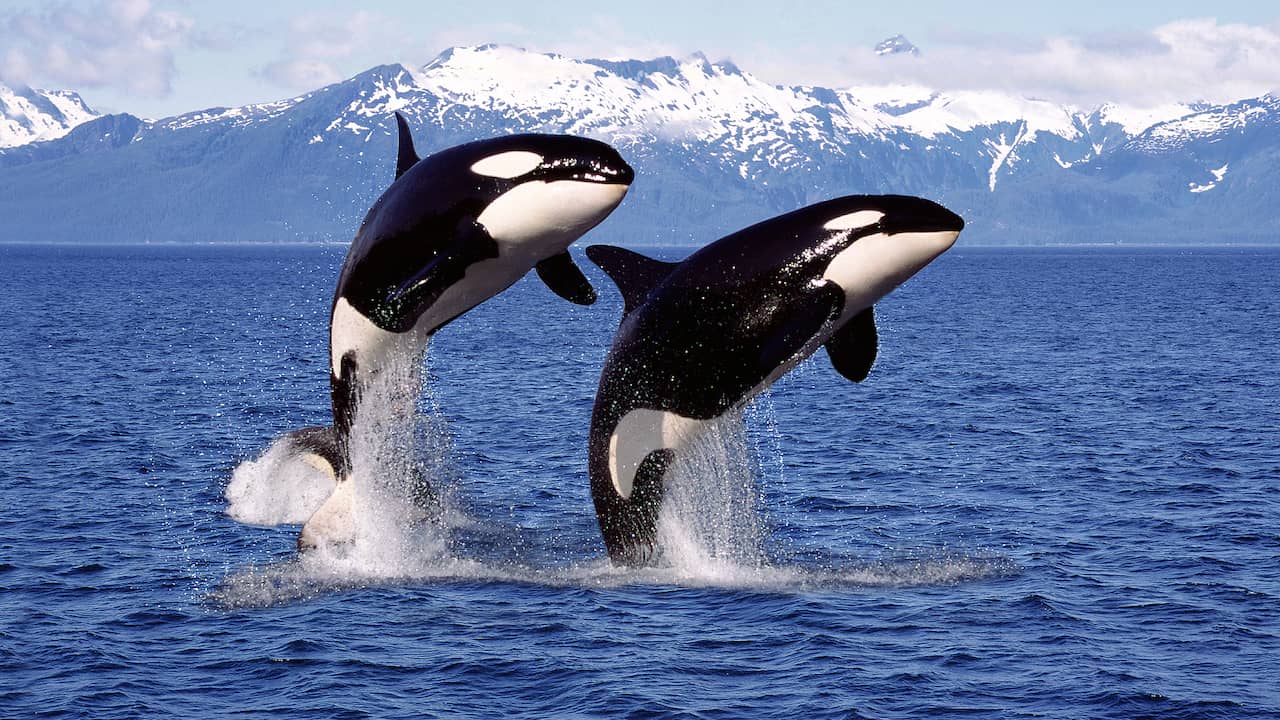Inbreeding is currently the biggest threat to killer whales off the North American west coast. The dolphins are sometimes so closely related that they die at a younger age. The already endangered species cannot recover in this way.
Female killer whales are most fertile at age 20. But in many cases they don’t even reach that age, according to a study published Monday in the scientific journal Nature Ecology & Evolution.
According to the researchers, it is not necessarily inbreeding itself that makes the population so vulnerable. “It’s more that inbreeding makes the animals more vulnerable to disease and environmental factors,” co-researcher Kim Parsons told the news agency. AP.
According to the researchers, three large groups of orcas live west of the US and Canada. Although the habitats of the groups overlap, they have not crossed regularly enough in the last thirty generations.
Catch for water parks dramatic for the killer whale
The orca population west of the US and Canada has had a hard time over the past half century. Due to environmental pollution and the capture of killer whales for water parks, the species was threatened with extinction.
In the 1960s and 1970s, it was very common to catch killer whales for the entertainment of humans. According to the water parks, there were enough orcas in the sea and the animals could also be caught sustainably.
But at least thirteen orcas died during the catch. 45 orcas ended up in animal parks around the world. According to the researchers, this resulted in the rapid disappearance of 40 percent of the orcas off North America. Now catching killer whales is prohibited.
Situation not hopeless
Still, according to Parsons, the situation is not hopeless. According to her, people can help the animal species by creating the best possible habitat. This is already happening. In North America, for example, dikes have been breached and dams have been removed to make room for salmon, which are prey for orcas.
Fishing is also limited, so that there is still enough food left for orcas. And boats need to move slower and farther away from orcas, so the animals are less stressed and can hunt better.
Humans should not interfere with the orcas’ reproductive process, say the researchers. For example, we should certainly not catch animals to bring them into contact with each other. “We really should leave it up to the orcas to mate with whoever they want and support the population in other ways,” says Parsons.


